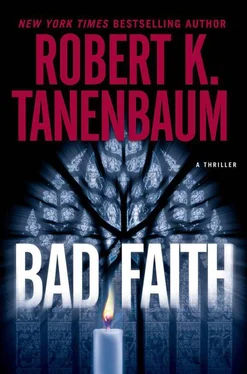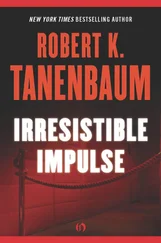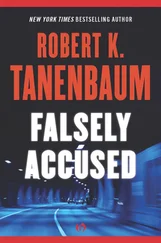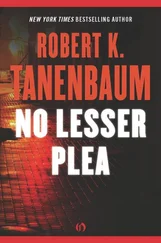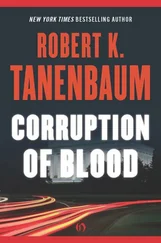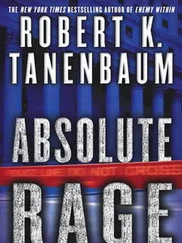Robert Tanenbaum - Bad Faith
Здесь есть возможность читать онлайн «Robert Tanenbaum - Bad Faith» весь текст электронной книги совершенно бесплатно (целиком полную версию без сокращений). В некоторых случаях можно слушать аудио, скачать через торрент в формате fb2 и присутствует краткое содержание. Жанр: Полицейский детектив, на английском языке. Описание произведения, (предисловие) а так же отзывы посетителей доступны на портале библиотеки ЛибКат.
- Название:Bad Faith
- Автор:
- Жанр:
- Год:неизвестен
- ISBN:нет данных
- Рейтинг книги:4 / 5. Голосов: 1
-
Избранное:Добавить в избранное
- Отзывы:
-
Ваша оценка:
- 80
- 1
- 2
- 3
- 4
- 5
Bad Faith: краткое содержание, описание и аннотация
Предлагаем к чтению аннотацию, описание, краткое содержание или предисловие (зависит от того, что написал сам автор книги «Bad Faith»). Если вы не нашли необходимую информацию о книге — напишите в комментариях, мы постараемся отыскать её.
Bad Faith — читать онлайн бесплатно полную книгу (весь текст) целиком
Ниже представлен текст книги, разбитый по страницам. Система сохранения места последней прочитанной страницы, позволяет с удобством читать онлайн бесплатно книгу «Bad Faith», без необходимости каждый раз заново искать на чём Вы остановились. Поставьте закладку, и сможете в любой момент перейти на страницу, на которой закончили чтение.
Интервал:
Закладка:
Karp stopped smiling as he looked at the worried face of his friend and colleague, who’d shown up unexpectedly to walk with his boss to the Criminal Courts Building at 10 °Centre Street for the Monday morning bureau chiefs meeting. As the district attorney of New York County, which encompassed the island of Manhattan, Karp had become the lightning rod for Westlund and his followers after the District Attorney’s Office charged David and Nonie Ellis with reckless manslaughter in the death that past November of their ten-year-old son, Micah. It hadn’t alleviated the situation when the DAO also charged Westlund and one of his henchmen with a misdemeanor for “obstructing a paramedic from the performance of his duty” outside the Ellises’ apartment building, which had resulted in a sentence of sixty days in the Tombs and a fine of a thousand dollars for the preacher and his follower.
As anticipated, the indictment against the Ellises ignited a firestorm of controversy between the proponents of “faith healing” and those, such as Karp himself, who believed that parents had a legal duty to provide “an accepted standard of care” for sick children. Lined up against Karp and the DAO were the religious zealots, who labeled the charges “a direct affront to the will of God,” and also so-called Constitutionalists, who railed about the government infringing on parents’ rights under the First Amendment’s freedom-of-religion protections. However, the debate wasn’t confined to the DAO versus the far end of the political-religious cult spectrum; it had also become a hot topic for newspaper editorials, as well as television and radio talk shows.
Although Karp didn’t pay much attention to the ever-fluctuating pulse of public opinion, Murrow, his adminstrative assistant, kept him updated on the general tenor of call-in radio shows, as well as letters to the editors of newspapers. The gentler remarks were that the district attorney was a heartless wretch who needed to be run out of office; some simply suggested that God should remove him for his transgressions.
Even those who agreed that Micah’s parents should have sought medical attention for their son were often convinced that the DAO was overreaching in accusing the Ellises of reckless manslaughter. Many of them argued that the “poor parents had suffered enough” and that attempting to convict them and send them to prison was cruel and unnecessary.
After one such briefing in his office by Murrow, Karp had shaken his head. “These people have forgotten that this isn’t about religion or the Constitution, it’s about a ten-year-old boy who suffered and died because his parents didn’t take him to a doctor,” he’d said. “It’s about a dead child and parental responsibilities, not a theoretical debate.”
Given the controversy, Karp would have preferred to try the Ellises himself. It was the sort of case that to him went to the heart of the justice system. He also understood that his taking the lead in trying cases set an example for the attorneys who worked for him; it demonstrated that he believed, as had his mentor, Francis Garrahy, that the New York DAO should pursue cases based on the rule of law-not popular opinion or political expediency-and that they were to keep foremost in their minds that before presenting a case to the grand jury they must have factual evidence of the guilt of the accused and legally admissible evidence to convict beyond a reasonable doubt.
However, he’d had another trial to prepare for and prosecute, which precluded his day-to-day direct involvement in the Ellis case, but he still kept vigilant oversight. He’d approved assigning Kenny Katz-one of his proteges in the Homicide Bureau, who’d sat second chair with him on several high-profile cases-as lead counsel, with an old colleague, Ray Guma, sitting in as the supervisorial seasoned mentor.
With jury selection for the trial starting in a little more than a week, Karp had been satisfied with Katz’s preparations under Guma’s watchful eye. The young man had avoided getting caught up in the hype surrounding a high-profile case and approached it professionally, as he would any other homicide case-with thorough preparation. And at the meeting this morning, he would be presenting his case to the bureau chiefs and various other assistant district attorneys to be dissected.
Katz had avoided any appearances in the media, directing all inquiries to Murrow, who’d mostly relied on the old “we won’t be trying this case in the press” non-comment. But Murrow had grown increasingly alarmed at the vitriol of those who thought that the Ellises should not have been charged and that Karp was the devil incarnate. When Murrow called that morning to say he was dropping by “to talk,” Karp knew it was because his friend was worried about his safety.
“It’s a lot of rhetoric, Gilbert,” Karp said. “If I responded to every threat, we’d never get anything done. Clay is on it and is taking the usual precautions, which as you know with him means Secret Service-type surveillance.”
Murrow sighed. Although trained as a lawyer and originally hired as an assistant district attorney, his duties now were to run the daily administrative operations of the office, including keeping Karp’s schedule and acting as his mouthpiece with the media. His “other” job was as Karp’s political adviser, which, while not a thankless task-as the boss frequently expressed his appreciation-was a difficult one to juggle since Karp hated that part of his job. But Murrow did his best to dance between his employer’s distaste for politics and the exigencies of his having to run for office every four years.
When the decision was made to charge the Ellises, Murrow shook his head, knowing what was to come. But he knew better than to argue judicial philosophy with his apolitical, merit-driven boss, so after glumly pointing out what to expect and from which corners, he accepted the fact that the case would go forward. Then he’d done his best to defend the DAO when the press came calling for comment, or when unfavorable and unfair editorials and “talking head” opinions came out, which again was no easy task as Karp could not have cared less what the media thought.
Nor was Karp going to give in now on the idea of beefing up security. It wasn’t that he was oblivious to the threats or trying to be a hero, but Karp wasn’t going to let his personal safety affect how he ran the office and his life. Nor did he think it would save him if he did. As he’d explained to Clay Fulton, the NYPD detective sergeant who was in charge of the detectives assigned as investigators to the DAO as well as Karp’s security, and to Murrow just a few days earlier, “If someone really wants to get at me, they’re going to do it. We take reasonable measures to prevent any incidents, but we all know from experience that a determined assassin will find a way to strike.”
Karp was not as matter-of-fact about the security for his twin boys, his daughter, and Marlene. However, even there he had limited control because of the rather unique makeup of his nuclear family.
Marlene, a former ADA herself who’d started the office’s sex crimes unit, was tough as nails. She had turned in her prosecutor’s badge to start a firm that provided VIP security services. Ultimately, the firm became highly successful and was purchased by a publicly held operation for millions. Lately, experiencing an apparent midlife crisis, she’d started taking on special cases in which her talent as a private investigator, as well as her law degree, were needed. Over the years, including “volunteer” work protecting abused women from brutal spouses and boyfriends, she’d shown a surprising proclivity for meeting violence with violence and coming out the winner. So when he’d mentioned the idea of increasing police protection for her and their children, she’d scoffed.
Читать дальшеИнтервал:
Закладка:
Похожие книги на «Bad Faith»
Представляем Вашему вниманию похожие книги на «Bad Faith» списком для выбора. Мы отобрали схожую по названию и смыслу литературу в надежде предоставить читателям больше вариантов отыскать новые, интересные, ещё непрочитанные произведения.
Обсуждение, отзывы о книге «Bad Faith» и просто собственные мнения читателей. Оставьте ваши комментарии, напишите, что Вы думаете о произведении, его смысле или главных героях. Укажите что конкретно понравилось, а что нет, и почему Вы так считаете.
